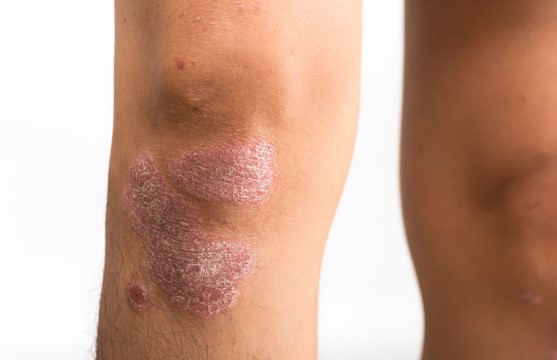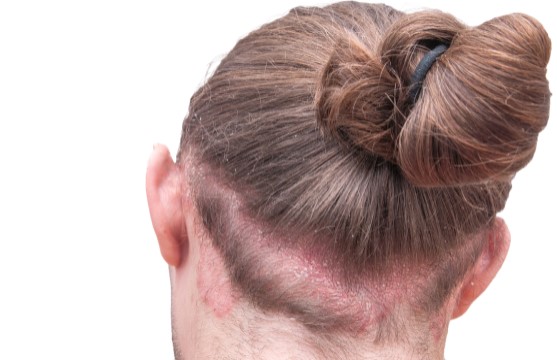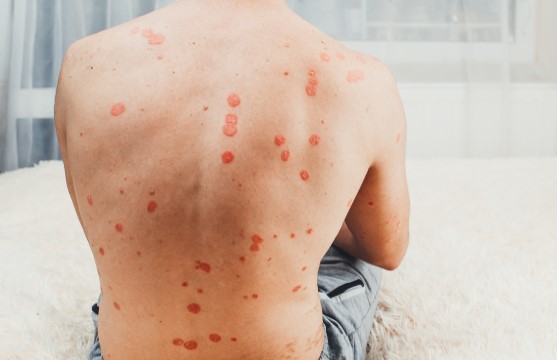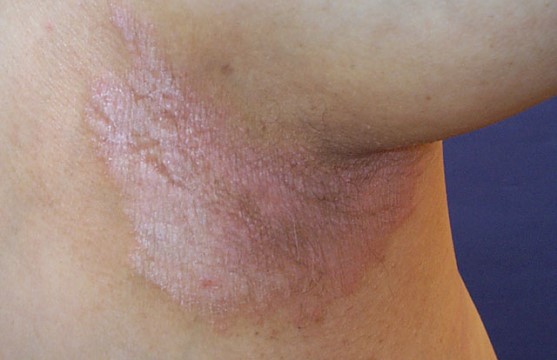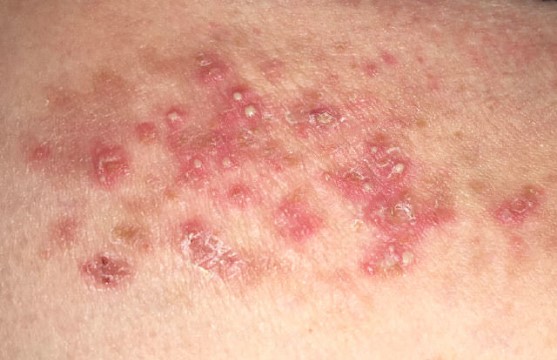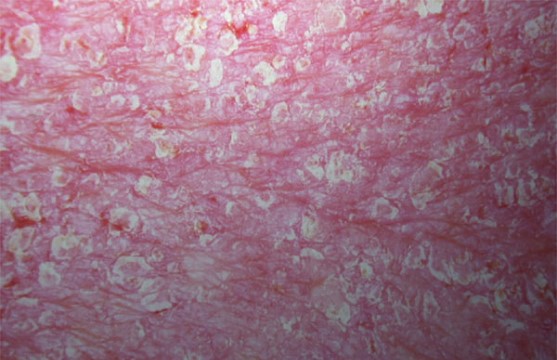Plaque psoriasis
The most common type of psoriasis, about 80-90% of people with psoriasis have this type.
The plaques (red, raised, scaly patches of skin) can be itchy or sore. If it is particularly bad, the skin around your joints may crack and bleed.
